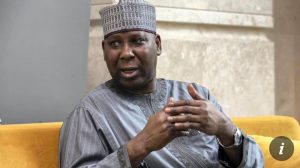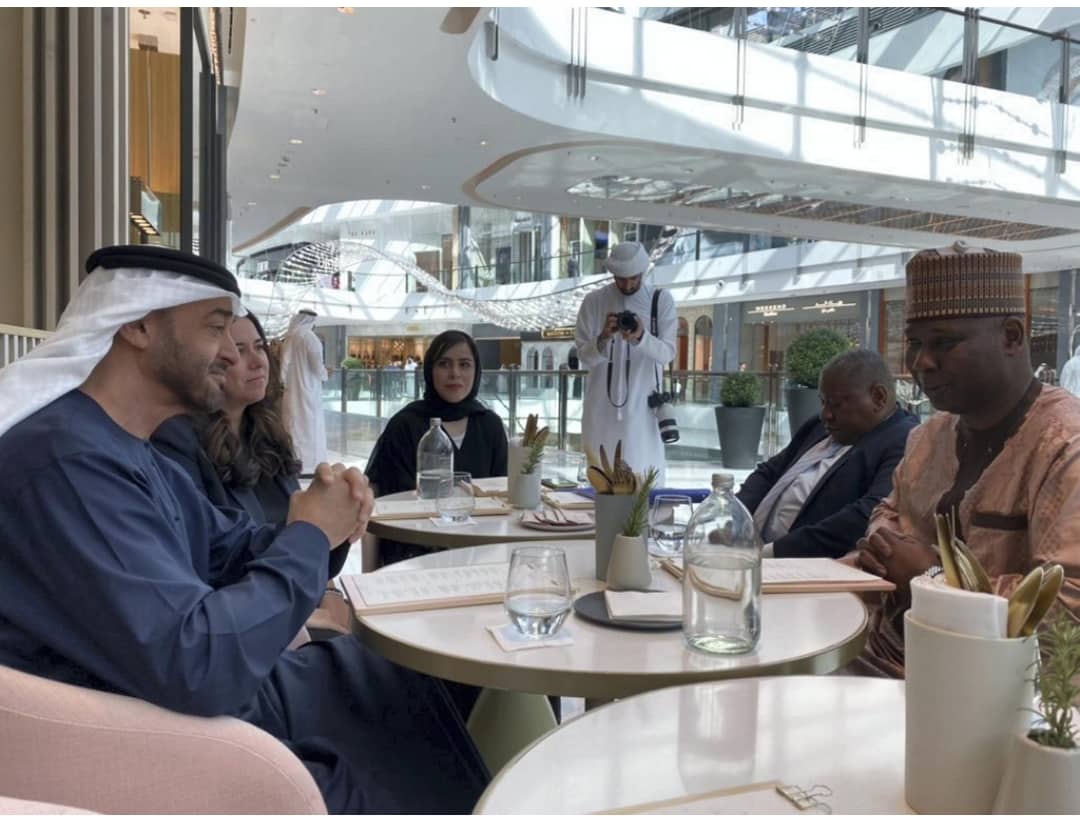The President of United Nations General Assembly, UNGA, Nigeria’s Tijjani Muammad-Bande in recent interview said that the state of the world has improved tremendously in the past 10 years not minding what news headlines say. According to a publication by The National, a Dubai based news outfit. The UN scribe made this known in an interview with the News Outfit why on a visit to United Arab Emirate for International Renewable Energy Agency Conference, amist escalation of tension between US and Iran following the killing of Iran’s military head Qassem Soleimani by US. According to him, the global co-orporation rose in the past decade in tackling situations that threatens world peace.
The UN scribe shows concern about possible arms race which is a big threat to United Nations aim for world peace. But he made it clear that the situation of the world is not as grim as recent events would suggest. Basing his assertion on the visible indicators like life expectancy and education which is on the rise globally. The UN General Assembly president, said that the global co-operation rose in the past decade, but he fears a new arms race, but made it clear that the situation of the world is not as grim as recent events would suggest. Basing his assertion on the visible indicators like life expectancy and education which is on the rise globally. His assessment focusing on issues central to lives of billlions around the world. Painting a mixed but largely positive picture, the report said.
Tijjani Muhammad-Bande who is a Professor of politics and the 75th UNGA president during the interview pointed out that life expectancy, education and government have broadly improved over the past decade, and also that co-operation has been made on health, fighting terrorism, money laundering, and promoting human rights. But it must worthy of note that Nigeria his home country is being investigated for human rights abuse by International Criminal court of justice, ICC, owing to the massacre of members of two groups by the Nigeria state because of human rights abuse and disobedient to court orders.

BIAFRA
The first group are the members of Indigenous People of Biafra (IPOB), a non-violent group calling for a referendum to determine wheather to remain in Nigeria or have their own Country which is known as Biafra. This group is made up of people from Nigeria Eastern Region which once existed as an independent nation from 1967~1970. During which about five million people lost their life through starvation and disease as they fight the Nigeria state in a war which is better called a genocide.
The second group being the members of the Islamic Movement of Nigeria (IMN) known as Shites who were massacre in Zaria in one of their clash with the Nigeria military with their Leader Sheik Al ZakZaki still in government net despite various court judgments in.his favor.
Also , it will be noted that that Nigeria has been named the poverty capital of the world by various international organizations like World Poverty Clock, as many of its citizens struggling to eat a meal per day not withstanding the rich natural resources the country is blessed with.
Continuing, the UN General Assembly president said that the global situation is not as grim as recent events would suggest, with indicators such as life expectancy and education on the rise.
He gave a forthright assessment of the world’s progress on issues central to the lives of billions around the world last week, painting a mixed but largely positive picture the report said. The UN scribe pointed out that as it stands now that focus on corruption has lessened and that United Nation which was created 75 years ago with the primary mission of world peace has been central to avoiding the third world war even though conflict still remain in the middle East and other places around the world.
During the chat, Mohhamad Bande told The National that “the global community has made progress in many areas related to life. For example, life expectancy education and transport. “There is more sensitivity to rights.”
On war he said that the potential for war has been reduced, with conflict at least “not on the scale we have experienced in the First and Second World Wars.” “These are huge achievements. We, of course, worry that there are new tensions, including the possibility, if we are not careful, of a new arms race.”
He said that while there is general agreement on the need to get rid of nuclear weapons, “the point where they are no longer available to any country is a long way off.”
During his visit the UN scribe also sat for coffee at Dubai Mall on Thursday with Sheikh Mohamed bin Zayed, Crown Prince of Abu Dhabi and Deputy Supreme Commander of the Armed Forces.
According to report by state news agency, Wam, they discussed humanitarian and developmental work, countering climate change and sustainable development.
The two men also discussed the UAE’s policy of tolerance in relation to the fight against terrorism.
Mr Muhammad-Bande said while in the meeting with the Crown Prince the two men “shared ideas on the best way to approach terrorism through education, training the imam, engagement with all sectors, and how the experience of the UAE is something that people could look at, in terms of making sure that everyone appreciates the value of tolerance.
“You cannot have a safe nation for a long time if the whole neighbourhood itself is in trouble,” he said. “So, the idea is also to exchange with the region and also the globe tolerance that has to be built and nurtured.”
Continuing he said “but terrorism cannot be traced to extreme ideologies alone, pointing to economic and social conditions, themselves afflicted by climate change, action against which has been hampered by corruption.
The UN scribe said the activities of terrorist groups have been undermined by increased sharing of information across borders. But added that “new media has made easy the spread of hateful ideologies”.
Mr Muhammad-Bande was careful about placing blame on the media alone, rejecting a tendency to dismiss as “fake news” any facts that some may find unpalatable the newspaper reported.
Read Also: French Transport Strike Drags On Despite Govt Compromise
But, insist the the media by nature do focus on certain topics and ignore others where progress might have occurred.
On ISIS
According to the newspaper report, he cautioned against celebrating the weakening of ISIS by Coalition forces, saying that the factors which feeds terrorism are complex. “The fight against terrorism is not coming to an end because of the lessening of activity of ISIS or others,” he said.
“It is a big fight still. You cannot easily find one cause. There is the social system and the economic conditions, and they vary from country to country.”
He said that in some case, climate change may be involved, “where people’s source of living has been blocked”.
“In other cases, it is the wrong education, where we have people confused about their place in the world and the place of religion, and they are amenable to recruitment. But they may also feel excluded.”
He said the fight against terrorism was “big and long term”, requiring that “the global community must not only continue to share ideas but also information”.
AFRICA TODAY NEWS, NEW YORK
